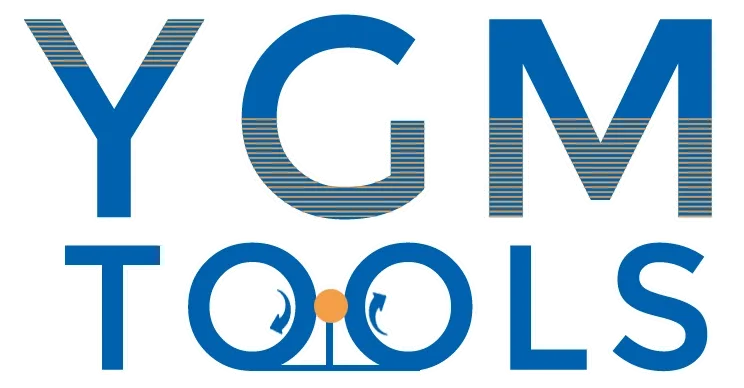
-
 Afrikaans
Afrikaans -
 Albanian
Albanian -
 Amharic
Amharic -
 Arabic
Arabic -
 Armenian
Armenian -
 Azerbaijani
Azerbaijani -
 Basque
Basque -
 Belarusian
Belarusian -
 Bengali
Bengali -
 Bosnian
Bosnian -
 Bulgarian
Bulgarian -
 Catalan
Catalan -
 Cebuano
Cebuano -
 Corsican
Corsican -
 Croatian
Croatian -
 Czech
Czech -
 Danish
Danish -
 Dutch
Dutch -
 English
English -
 Esperanto
Esperanto -
 Estonian
Estonian -
 Finnish
Finnish -
 French
French -
 Frisian
Frisian -
 Galician
Galician -
 Georgian
Georgian -
 German
German -
 Greek
Greek -
 Gujarati
Gujarati -
 Haitian Creole
Haitian Creole -
 hausa
hausa -
 hawaiian
hawaiian -
 Hebrew
Hebrew -
 Hindi
Hindi -
 Miao
Miao -
 Hungarian
Hungarian -
 Icelandic
Icelandic -
 igbo
igbo -
 Indonesian
Indonesian -
 irish
irish -
 Italian
Italian -
 Japanese
Japanese -
 Javanese
Javanese -
 Kannada
Kannada -
 kazakh
kazakh -
 Khmer
Khmer -
 Rwandese
Rwandese -
 Korean
Korean -
 Kurdish
Kurdish -
 Kyrgyz
Kyrgyz -
 Lao
Lao -
 Latin
Latin -
 Latvian
Latvian -
 Lithuanian
Lithuanian -
 Luxembourgish
Luxembourgish -
 Macedonian
Macedonian -
 Malgashi
Malgashi -
 Malay
Malay -
 Malayalam
Malayalam -
 Maltese
Maltese -
 Maori
Maori -
 Marathi
Marathi -
 Mongolian
Mongolian -
 Myanmar
Myanmar -
 Nepali
Nepali -
 Norwegian
Norwegian -
 Norwegian
Norwegian -
 Occitan
Occitan -
 Pashto
Pashto -
 Persian
Persian -
 Polish
Polish -
 Portuguese
Portuguese -
 Punjabi
Punjabi -
 Romanian
Romanian -
 Russian
Russian -
 Samoan
Samoan -
 Scottish Gaelic
Scottish Gaelic -
 Serbian
Serbian -
 Sesotho
Sesotho -
 Shona
Shona -
 Sindhi
Sindhi -
 Sinhala
Sinhala -
 Slovak
Slovak -
 Slovenian
Slovenian -
 Somali
Somali -
 Spanish
Spanish -
 Sundanese
Sundanese -
 Swahili
Swahili -
 Swedish
Swedish -
 Tagalog
Tagalog -
 Tajik
Tajik -
 Tamil
Tamil -
 Tatar
Tatar -
 Telugu
Telugu -
 Thai
Thai -
 Turkish
Turkish -
 Turkmen
Turkmen -
 Ukrainian
Ukrainian -
 Urdu
Urdu -
 Uighur
Uighur -
 Uzbek
Uzbek -
 Vietnamese
Vietnamese -
 Welsh
Welsh -
 Bantu
Bantu -
 Yiddish
Yiddish -
 Yoruba
Yoruba -
 Zulu
Zulu
Advanced Bolt Rolling Machine for High Precision Metal Forming Applications
The Evolution and Importance of Bolt Rolling Machines in Modern Manufacturing
In the fast-paced world of manufacturing, the efficiency and precision of production processes are crucial for maintaining competitiveness and quality standards. Among the various machines that play a vital role in shaping metal components, bolt rolling machines have carved out a significant niche. These machines are designed specifically for the mass production of bolts, nuts, and other fasteners, and their evolution over the years has had a profound impact on industries ranging from automotive to construction.
What is a Bolt Rolling Machine?
Bolt rolling machines are specialized apparatuses used to shape metal wire into bolts through a process called cold forming. In this process, wire is fed into the machine, and through a series of rollers and dies, it is formed into the desired shapes and sizes without the need for heating. This method not only enhances the physical properties of the metal but also allows for greater precision and efficiency than conventional manufacturing techniques.
The Benefits of Using Bolt Rolling Machines
One of the primary advantages of bolt rolling machines is their efficiency. Traditional machining processes, such as cutting and drilling, can be time-consuming and wasteful, as they often create significant material scrap. In contrast, bolt rolling machines utilize the cold forming technique, which minimizes waste and maximizes material usage. This results in a more sustainable production process, which is increasingly important in today’s eco-conscious manufacturing landscape.
Moreover, bolt rolling machines produce components with superior mechanical properties. The cold working of the metal improves its tensile strength, which is critical for applications where reliability is non-negotiable. This is particularly relevant in sectors like automotive, where bolts and fasteners must withstand high levels of stress and strain.
Technological Advancements
bolt rolling machine product

The bolt rolling machine has undergone significant technological advancements over the years. Modern machines are equipped with advanced computer numerical control (CNC) systems, allowing manufacturers to program them for various bolt sizes and configurations without the need for extensive retooling. This versatility enables manufacturers to respond quickly to market demands and customize products to meet specific client requirements.
Additionally, automation and robotics have been integrated into bolt rolling machines, further enhancing their performance. Automated feeding systems reduce labor costs and increase throughput, while robotic arms can handle post-production tasks such as sorting and packaging. This integration of technology not only boosts productivity but also minimizes human error, ensuring consistent quality in every batch of produced components.
Challenges and Considerations
Despite their numerous advantages, manufacturers face challenges when integrating bolt rolling machines into their operations. The initial investment for high-quality machines can be substantial, and for smaller plants, this might pose a financial burden. Additionally, the precision engineering required in the design of dies and rollers necessitates skilled labor and expertise, which can sometimes be in short supply.
Another consideration is the maintenance of these machines. Regular servicing and upkeep are essential to ensure their optimal performance and longevity. Failure to maintain bolt rolling machines can lead to unexpected downtimes, thereby affecting production schedules and overall efficiency.
The Future of Bolt Rolling Machines
Looking ahead, the future of bolt rolling machines appears promising. As industries continue to evolve and demand higher quality and more complex fasteners, the need for advanced rolling technology will only increase. The integration of artificial intelligence and machine learning can further optimize the production process, allowing for predictive maintenance and enhanced product quality monitoring.
In conclusion, bolt rolling machines are an integral part of modern manufacturing, streamlining the production of essential components while promoting sustainability and efficiency. As technology continues to advance, these machines will undoubtedly evolve, helping manufacturers keep pace with the demands of a rapidly changing market. Their importance in various industries cannot be understated, and as we move forward, the innovation surrounding bolt rolling machines is likely to shape the future of manufacturing.
